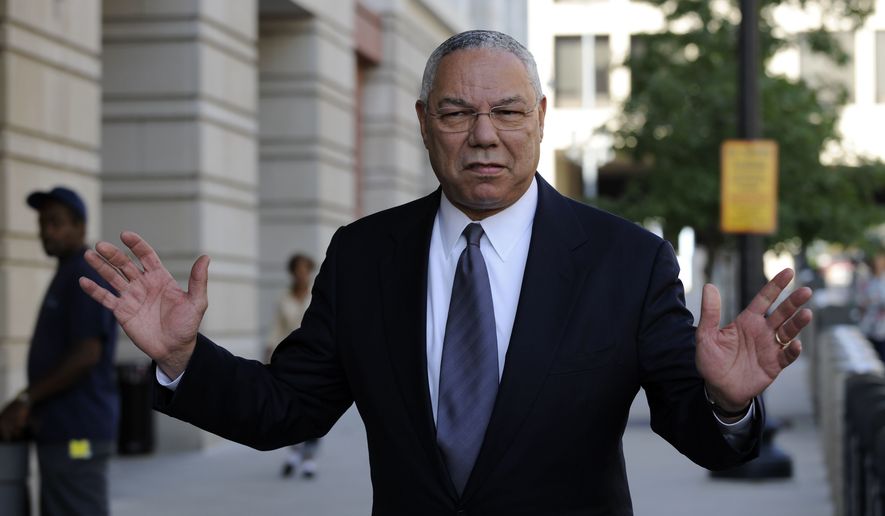Colin Powell didn’t campaign or raise any money, but he outperformed every presidential candidate not named Donald Trump or Hillary Clinton at the 2016 Electoral College.
The former secretary of state received three electoral votes Monday in Washington state from rogue Democratic electors who refused to vote for Mrs. Clinton, the winner of the state’s popular vote, putting him third in line for the presidency.
The three electors who voted for Mr. Powell instead of Mrs. Clinton as part of the Hamilton Electors movement were P. Bret Chiafalo, Levi Guerra and Esther John.
“He’s so well-respected on both sides of the aisle, and he’s so sane. It seemed it would be important to have a compromise candidate who has that type of stability,” Ms. John told KING-TV in Seattle.
A revolt fueled by anti-Trump forces resulted in both Mr. Trump and Mrs. Clinton losing electoral votes, although the defections failed to change the outcome of the Nov. 8 election.
Mr. Trump won 304 electoral votes, easily surpassing the 270 votes needed to secure the presidency but two fewer than the 306 electoral votes he won in the Nov. 8 election.
That’s because two Republican electors in Texas deviated from the state’s popular vote. Elector Chris Suprun voted for Ohio Gov. John Kasich, while elector Bill Greene cast his ballot for ex-Rep. Ron Paul, according to the Austin American-Statesman.
Mrs. Clinton lost five of her 232 electoral votes. Three Democratic electors in Washington threw their support behind Mr. Powell, a retired Army four-star general who served in President George W. Bush’s administration, while a fourth voted for Faith Spotted Eagle, an activist opposing the Dakota Access pipeline.
One of Hawaii’s four Democratic electors voted for Vermont Sen. Bernie Sanders, who placed second in the Democratic presidential primary to Mrs. Clinton.
A Democratic elector in Maine tried to vote for Mr. Sanders, but switched to Mrs. Clinton after being ruled out of order. In Colorado and Minnesota, Democratic electors who cast their ballots for candidates other than Mrs. Clinton were replaced.
Republican electors had come under intense pressure to vote for anyone but Mr. Trump in a Democrat-fueled effort to throw the election to the GOP-controlled House.
The Hamilton Electors campaign was a flop, but if it had succeeded, the House would have been required to select the next president from the top-three electoral-vote recipients: Mr. Trump, Mrs. Clinton and Mr. Powell.
The seven faithless electors — five Democrats and two Republicans — who refused to follow the will of voters in their states represented the largest Electoral College defection since the 1872 presidential election.
The four faithless electors in Washington could face fines of up to $1,000 for violating state law requiring them to vote for the winner of the state’s popular vote.
Twenty-nine states and the District of Columbia have laws that require electors to adhere to the will of the voters in casting their Electoral College ballots.
• Valerie Richardson can be reached at vrichardson@washingtontimes.com.




Please read our comment policy before commenting.